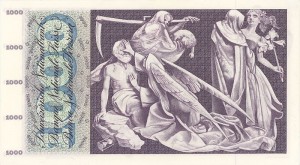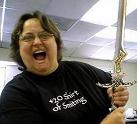“I don’t know what money is today, and I don’t think anybody at the Fed does either.”
Richard Pratt,
Chairman of the Board of the Federal Home Loan Bank, 1982
“American democracy was founded on the principle, stressed by James Madison in the Constitutional Convention in 1787, that the primary function of government is to protect the minority of the opulent from the majority. Thus he warned that in England, the only quasi-democratic model of the day, if the general population were allowed a say in public affairs, they would implement agrarian reform or other atrocities, and that the American system must be carefully crafted to avoid such crimes against the rights of property, which must be defended (in fact, must prevail).”
Noam Chomsky, Noam Chomsky on Anarchism, Marxism & Hope for the Future, May 1995
“Capitalism works because most of us have swallowed these two big lies:
1) Society is best organized when people look after their own self-interest at the expense of everyone else’s. In fact, this is human nature.
2) A healthy economy can only be based on ever-expanding consumption and production. This can go on forever. Science will overcome all obstacles to the continuation of this process.”
Boog Highberger
“The Two Big Lies of Capitalist Economics”
“What is property, what is capital in their present form? For the capitalist and the property owner they mean the power and the right, guaranteed by the State, to live without working. And since neither property nor capital produces anything when not fertilized by labor – that means the power and the right to live by exploiting the work of someone else…”
by Michael Bakunin, THE CAPITALIST SYSTEM
“The most prominent characteristic of capitalism is the wage system, which in brief amounts to this:- A man, or a group of men, possessing the necessary capital, starts some industrial enterprise; he undertakes to supply the factory or workshops with raw material, to organize production, to pay the employees a fixed wage, and lastly, to pocket the surplus value or profits, under pretext of recouping himself for managing the concern, for running the risks it may involve, and for the fluctuations of price in the market value of the wares
PETER KROPOTKIN, THE CONQUEST OF BREAD
“For my part, I must confess, I never could conceive that an all-wise, just, and benevolent Being would contrive one Part of his Plan to be so contradictory to the other, as here supposed;- that is, would lay us under one Obligation as to Morals, and another as to Trade…”
Dean of Gloucester, Josiah Tucker (1712-1799), A Study In The History Of Economics



 Bad Behavior
Bad Behavior Member of American Mensa, Ltd.
Member of American Mensa, Ltd. Church of the Flying Spaghetti Monster
Church of the Flying Spaghetti Monster Potential Threat To The Nation
Potential Threat To The Nation Amazon.com Daily Deals
Amazon.com Daily Deals